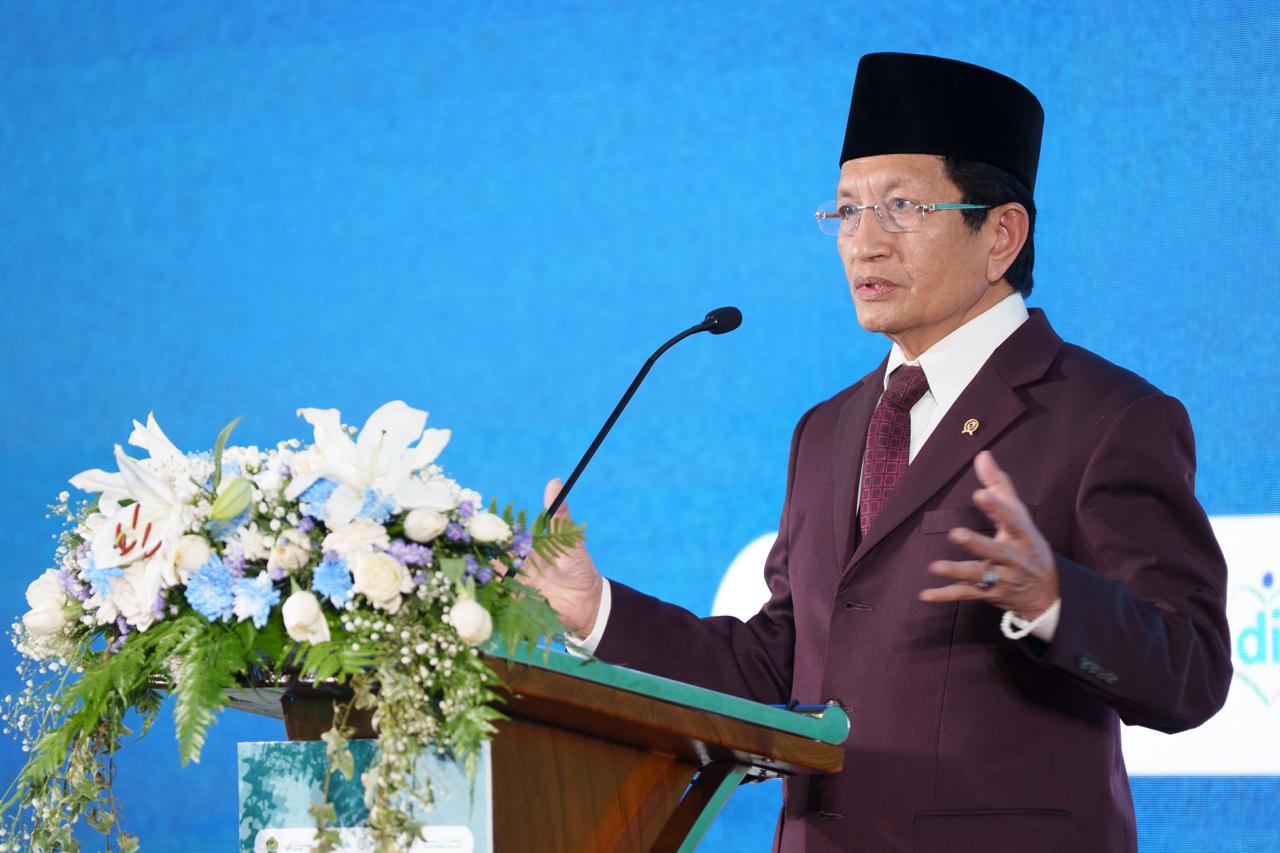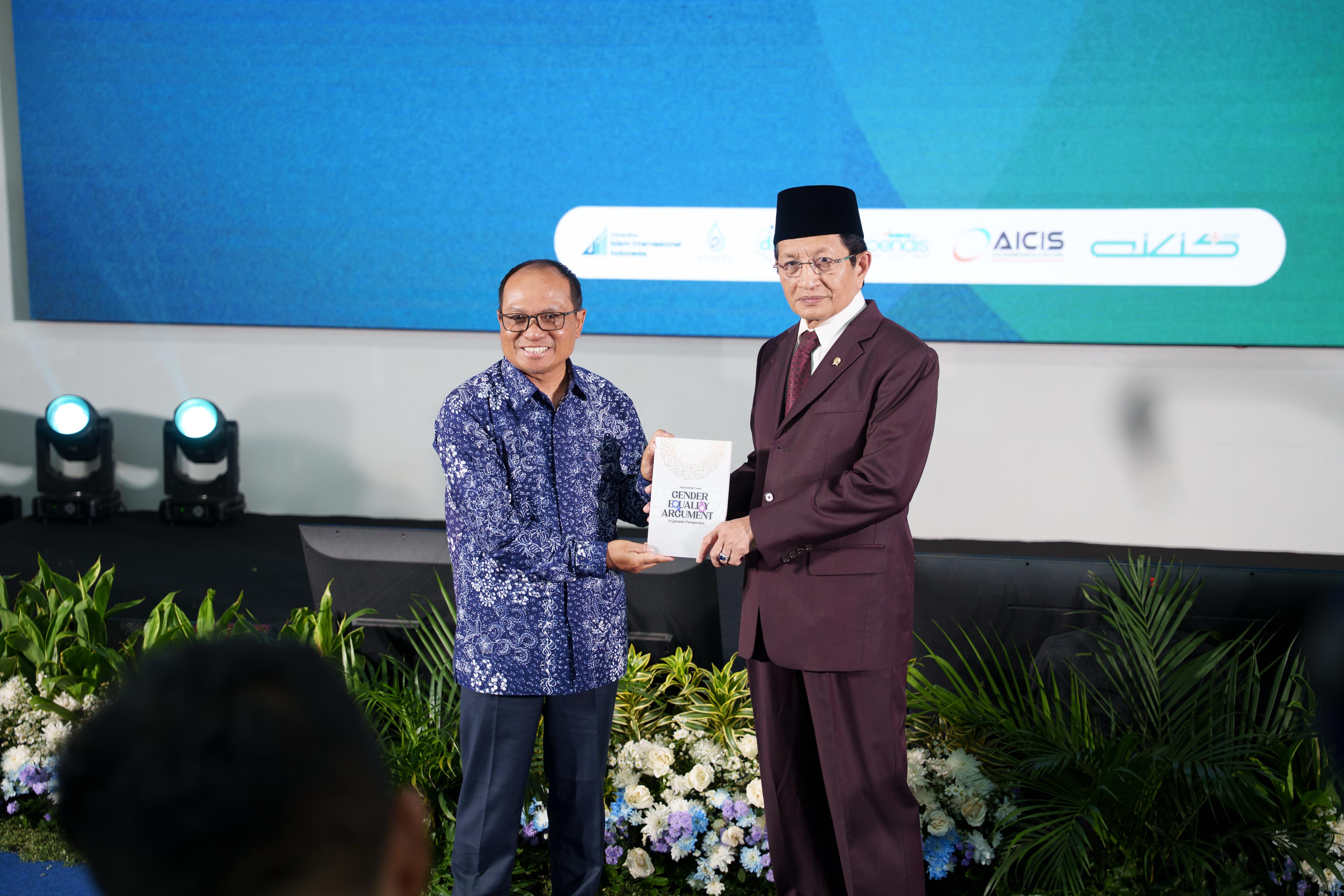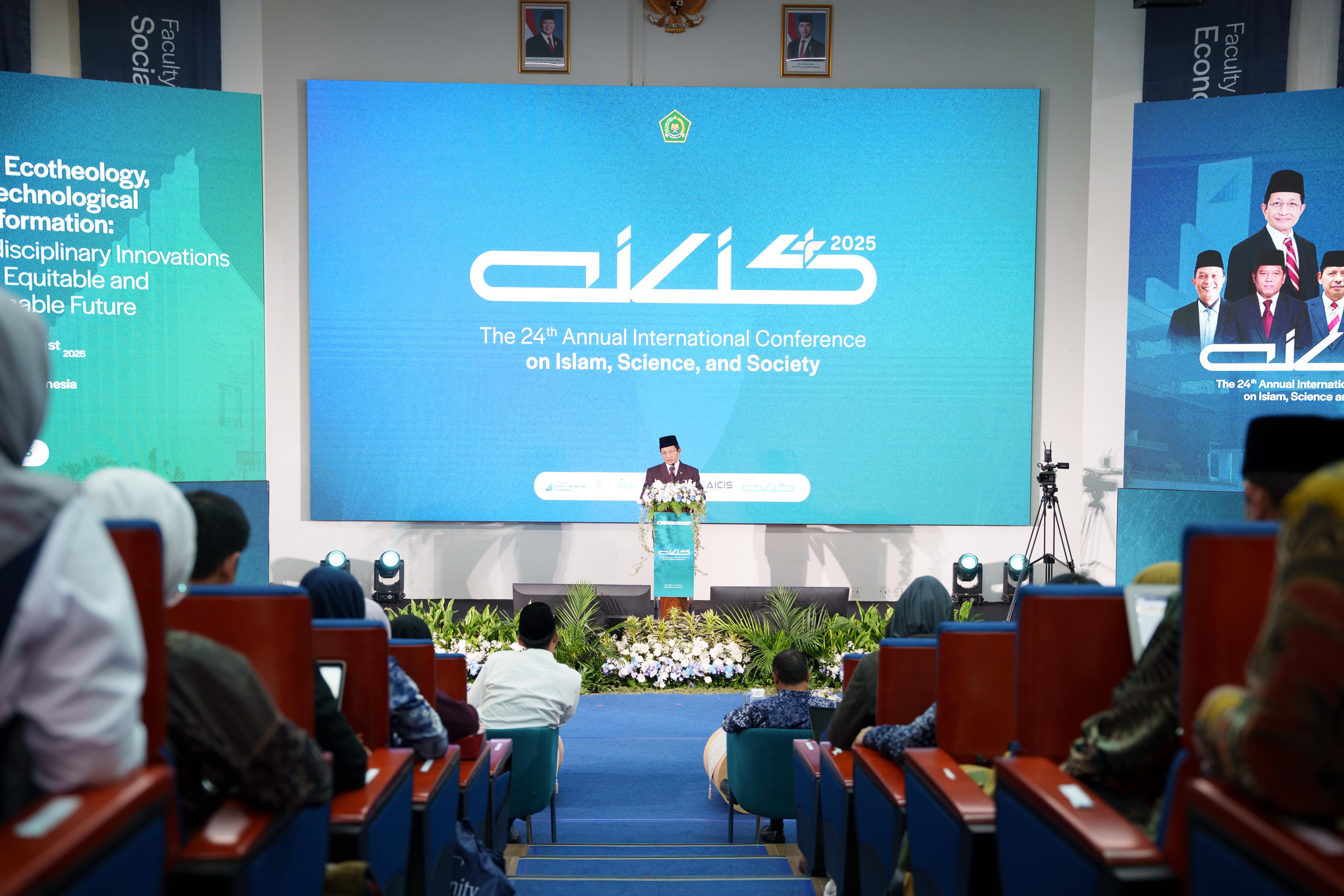More From News
UIII Builds a Bridge to Costa Rica
February 26, 2026
November 3, 2025
Contributor: Supriyono | Photo: Achmad Jatnika

Indonesia’s Minister of Religious Affairs, Prof. Dr. K.H. Nasaruddin Umar, M.A., delivered a thought-provoking address at the Annual International Conference on Islam, Science and Society (AICIS+) 2025, hosted by Universitas Islam Internasional Indonesia (UIII). In his speech, Prof. Nasaruddin urged scholars and theologians to move beyond predominantly masculine interpretations of theology and to embrace a more feminine approach to understanding God, ethics, and spirituality.
“Throughout history, theological discourse has been dominated by masculine perspectives,” he remarked. “We need to balance it with more feminine theology—one that emphasizes compassion, empathy, care, and inclusivity rather than control, rigidity, and domination.”
Prof. Nasaruddin reflected on how the world today faces deep moral and spiritual challenges, from global inequality to environmental degradation. He suggested that these crises are, in part, the result of an imbalance between the masculine and feminine elements within religious and ethical thinking. “God’s attributes are not only powerful and commanding,” he said, “but also merciful, nurturing, and loving. We must restore this balance in our understanding of divinity.”
 He highlighted that many societies, including Muslim communities, have unconsciously adopted “masculine” forms of theology that prioritize structure, authority, and law, while overlooking the “feminine” aspects that foster harmony, empathy, and communal well-being. According to him, this imbalance has shaped not only religious institutions but also political and social systems.
He highlighted that many societies, including Muslim communities, have unconsciously adopted “masculine” forms of theology that prioritize structure, authority, and law, while overlooking the “feminine” aspects that foster harmony, empathy, and communal well-being. According to him, this imbalance has shaped not only religious institutions but also political and social systems.
Prof. Nasaruddin, known for his long-standing advocacy of gender-inclusive theology, called on scholars to develop new theological frameworks that reflect the equal spiritual capacities of men and women. He emphasized that the future of Islamic thought should be guided by values of justice, balance, and mercy, all of which are central to the Qur’an.
“The time has come for theology to evolve,” he said. “We must transform our understanding from a theology of dominance to a theology of harmony—a theology that heals rather than divides.”
 The Minister also linked this paradigm shift to global challenges, noting that a more feminine theological outlook could inspire new solutions to social issues, interfaith relations, and environmental ethics. “If we adopt a theology that listens rather than dictates, that nurtures rather than conquers, humanity will find its way back to peace,” he concluded.
The Minister also linked this paradigm shift to global challenges, noting that a more feminine theological outlook could inspire new solutions to social issues, interfaith relations, and environmental ethics. “If we adopt a theology that listens rather than dictates, that nurtures rather than conquers, humanity will find its way back to peace,” he concluded.
AICIS+ 2025, themed “Integrating Faith, Science, and Society for a Sustainable Future,” brings together leading scholars, researchers, and policymakers from around the world to discuss the role of Islam in addressing contemporary global challenges. Prof. Nasaruddin’s address set a reflective and transformative tone for the conference, encouraging participants to rethink the spiritual foundations of their disciplines in pursuit of a more balanced and compassionate world.
Universitas Islam Internasional Indonesia